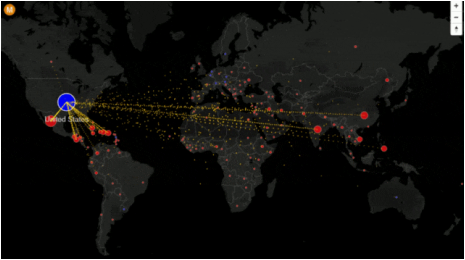|
Five days ago we said goodbye to Greece, goodbye to Lesbos, goodbye to the camp, and goodbye to the faces that we had familiarized ourselves with over the last week. Undoubtedly, the latter was the most difficult to say goodbye to. Face of men, women, and children who are living a life we can never imagine. For myself, goodbyes are typically never that difficult. I've rarely said goodbye to someone who I knew I'd never see again. This goodbye was different. What do you tell to someone in that situation when you are saying goodbye? What do you tell to someone who you know you'll likely never see again? For the thousands of refugees living on Lesbos and the hundreds-of-thousands more around the world, goodbye is something they said to their homes long ago. Goodbye is sadly a conversation they're very familiar with. However, with each goodbye, as I learned over the week, comes a glimmer of hope for the future. Every one of those hundreds-of-thousands knows exactly where they want to be and exactly when they want to be there. The best I could do, when saying goodbye, was to express my hopes for their future. Hopes that they find what they're looking for. Hopes that their lives are blessed in the future. Hopes that maybe someday our paths will cross. Hopes that the world welcomes them with open arms in the same manner they welcomed us. Hopes that someday I'm lucky enough to help others in the ways they've helped me. Let me ask you a question: What wouldn't you do for your neighbors? Would you feed them? Would you clothe them? Would you house them if they lost their home? Would you tend to their health? I would hope the answer to these questions would all be the same. Now, think about this. Who are your neighbors? Are they just the people who live next to you? Are they the people in your community, town, village or city? Our world is now more interconnected than ever before. One could jump on the Internet and strike up a conversation with someone thousands of miles away within a matter of minutes. With this inter-connectivity comes cross-cultural exchange on a grand scale. Hopefully, with this cultural exchange also comes cross-cultural awareness, understanding, tolerance, and respect. The same type of thing occurs when you care directly for your neighbors in the ways expressed above. I would argue that the list of people who aren't your neighbor is smaller than the list of things you wouldn't do for your neighbor. Above I asked you who your neighbors are. Look at the map above depicting migration to the United States (click the picture to see the animation). Who isn't your neighbor? Is it possible that someone you have never met and may never meet in your life could be your neighbor? If you believe the world is more interconnected than ever before, the answer to that question is yes, they are your neighbor. All those things you said you'd do for those living directly near you, I urge you to do for all of mankind. Last night, someone asked me if "it has all set in yet." I'll admit, I wasn't prepared for that question and wasn't exactly sure how to answer it. Has it all set in? I don't think it will ever fully set in. Once you experience something like that, how do you go back? How do you ever look at life the same way? The answer is, you don't. For that, I'm thankful, because I don't want to.
-Ryan
1 Comment
|
AuthorStephen Blan teaches US History at Fort Worth Country Day in Fort Worth, TX and is a 2015 Teachers for Global Classrooms Fellow. Archives
September 2017
Categories
All
|

 RSS Feed
RSS Feed
